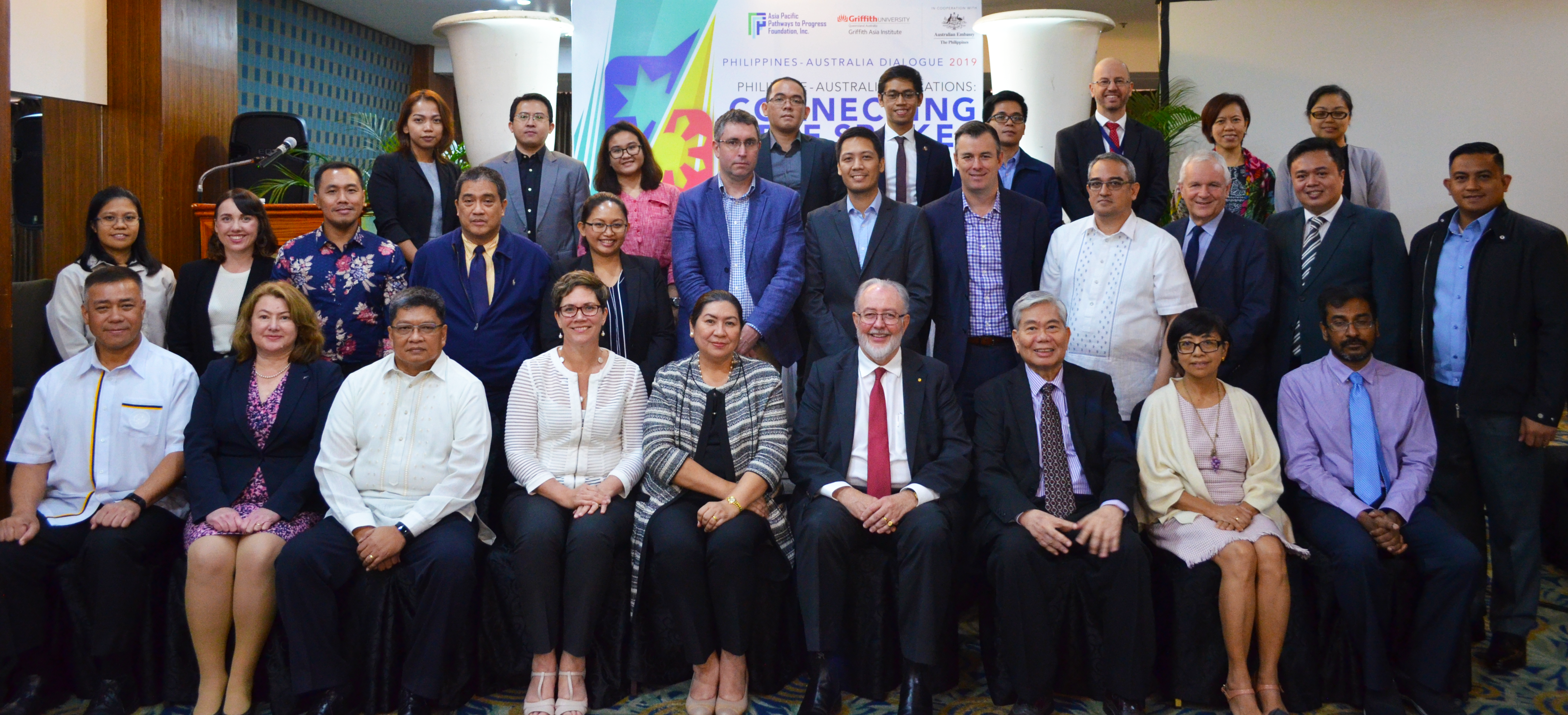What are the exigent challenges, opportunities, and ways forward for Philippine-Australian relations amid great power geopolitical competition in the Asia-Pacific? Both countries are allies of the U.S. and thus part of the latter’s “hub and spokes” system, and they face similar security challenges.
Manila-based think-tank Asia- Pacific Pathways to Progress. (APPFI) and the Brisbane-based Griffith Asia Institute (GAI) jointly organized this year’s Philippines-Australia Dialogue on July 18-19. Held with the support of the Australian Embassy in the Philippines, the theme of the dialogue was “Connecting the Spokes”.
Ambassador of Australia to the Philippines, Hon. Steven Robinson, in his keynote address affirmed that Australia would not passively await its fate amid great-power contests but instead would actively participate in shaping regional affairs. He welcomed ASEAN’s recently released Indo-Pacific Outlook, which promotes ASEAN-centrality and ASEAN-led mechanisms to manage great power relations and contests.
He argued for further improvement in Australia’s relationship with the Philippines by strategically focusing on defense and counter-terrorism cooperation, building on joint efforts during the Marawi siege. Other areas for enhanced cooperation include maritime security to ensure free navigation in waterways and economic development particularly on digital finance, science and technology, and investment. The panel on economic relations demonstrated that trade volume between the Philippines and Australia actually remain relatively low.
Participants to the dialogue meanwhile identified the reciprocal benefits of security cooperation, where the Philippines provides excellent training ground for operational scenarios, while Australia has much to contribute in terms of military materiel, technical training in equipment usage, and higher education. Australia is the only country other than US with which the Philippines has signed a Status of Visiting Forces Agreement.
The discussions during the Dialogue are bound to resonate in a region where middle powers are keen to perform balancing acts between the US and China amid their ongoing trade war and intensifying military build-up. There might be a silver lining to ASEAN being the proverbial grass amid fighting elephants, some participants noted, since the member states could maneuver toward strategic autonomy.
The event, an annual Track Two strategic dialogue, was attended by fifty academics, government analysts, other practitioners, and technical experts.

